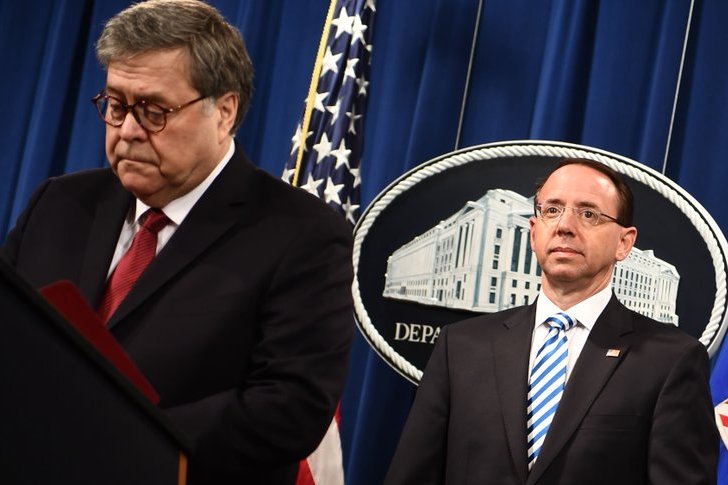Jacob G. Hornberger |
After decades of warfare, the federal drug war has become a predictable cycle. Drug dealer, drug gang, or drug user busted. DEA agents celebrate the bust. Newspaper reporters laud the DEA. Defendants prosecuted, convicted, and sent to jail. And then? Then, the cycle repeats itself. Drug dealer, drug gang, or drug user busted. DEA agents celebrate the bust. Newspaper reporters laud the DEA. Defendants prosecuted, convicted, and sent to jail. And again and again and again. Month after month. Year after year. Decade after decade.
The cycle never stops. Normally when one wages a war, he strives for victory. But no one ever defines what victory in the drug war would look like. The feds seem satisfied to simply engage in the same cycle, over and over again, into perpetuity. Some proponents of the drug war say that if only the federal government really cracked down in the war on drugs, the war could be won. But what they fail to recognize is that over the years, the federal government really has cracked down.
This year is set to be the country’s bloodiest since the government started releasing crime figures in 1997, with about 27,000 murders in the past 12 months.
The feds adopted mandatory-minimum sentences, which took sentencing discretion out of the hands of federal judges and imposed draconian sentences for drug-law violations. They enacted asset-forfeiture laws, which enable the DEA to seize people’s money without charging them with any offense. They bash people’s door down in the middle of the night, violently raiding their homes, oftentimes killing the inhabitants or their pets.
They arbitrarily stop, search, abuse, and humiliate people, especially African-Americans. In some cases, they have even resorted to planting drugs on people. None of it has brought victory. The cycle simply continues to repeat itself, over and over again. Drug bust, followed by prosecution, conviction, and incarceration, followed by a new drug bust, followed by prosecution, conviction, and incarceration.
Read more: Philippines’ deadly drug war praised by Donald Trump, says Rodrigo Duterte
Drug-war proponents might say, “Jacob, the problem is that we haven’t really, really cracked down. If we got the military involved and authorized our soldiers to fight this war like a real war, where they could raid people’s homes whenever they wanted, search whoever they like, and kill anyone suspected of violating drug laws, victory would finally be ours.” Really?
Why hasn’t drug-war victory been declared in the Philippines? According to Human Rights Watch, the Philippine government has killed more than 12,000 drug suspects in the last two years of drug warfare. No arrests. No trials. No convictions. No incarcerations. Just straight-out killing.
In fact, when we look back on this whole thing, the only thing the drug war has really accomplished is jobs for DEA agents, federal prosecutors, federal judges, and, yes, black-market drug dealers.
Yet, still no victory! In fact, they continue to wage their war on drugs with even more ferocity. What gives with that? It’s pretty much impossible to crack down more than arbitrarily killing drug-war suspects outright. Doesn’t that imply that if the DEA and the U.S. military were given the same power here in the United States, killing tens of thousands of Americans would still not lead to drug-war victory? Consider Mexico, where the military has long played an active role in the country’s drug war. According to the Guardian,
It is 11 years since the then-president Felipe Calderón launched a militarised crackdown on drug cartels deploying thousands of soldiers and promising an end to the violence and impunity. But the bloodletting continues, the rule of law remains elusive and accusations of human rights abuses by state security forces abound. All the while, Mexico continues to race past a series a grim milestone: more than 200,000 dead and an estimated 30,000 missing, more than 850 clandestine graves unearthed.
Read more: Mexico seizes record 50 tons of meth
This year is set to be the country’s bloodiest since the government started releasing crime figures in 1997, with about 27,000 murders in the past 12 months. Do we really want the federal government to go down Mexico’s road by bringing in the U.S. military to try to win the drug war? Why should we expect different results here?
If the objective of the drug war is stopped people from possessing or distributing drugs, that objective has obviously not been achieved despite decades of warfare. Moreover, in the process of trying to achieve that objective, the federal government has unleashed massive death, destruction, the ruination of lives, exorbitant spending, and loss of liberty and privacy. In fact, when we look back on this whole thing, the only thing the drug war has really accomplished is jobs for DEA agents, federal prosecutors, federal judges, and, yes, black-market drug dealers.
Read more: Drug war dust-up in New York governor’s race
I say: Let’s just legalize drugs, which would, in one fell swoop, eradicate drug gangs and drug cartels, along with the necessity for DEA agents and federal prosecutors and federal judges whose jobs depend on the drug war. It would also keep drug use and drug abuse in the private sector, including rehabilitation, where they belong. That would be a genuine victory.
Jacob G. Hornberger is founder and president of The Future of Freedom Foundation. He was a trial attorney for twelve years in Texas. He also was an adjunct professor at the University of Dallas, where he taught law and economics. In 1987, Mr. Hornberger left the practice of law to become director of programs at the Foundation for Economic Education. This article was first published in The Future of Freedom Foundation and is republished here with permission. The views expressed in this article are the author’s own and do not necessarily reflect Global Village Space’s editorial policy.














